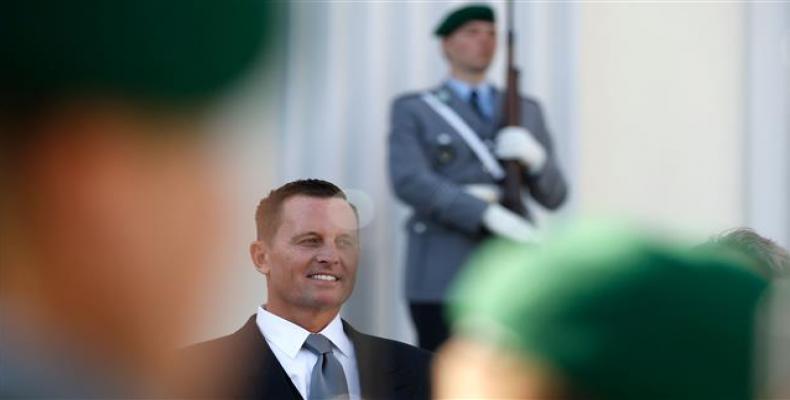Washington, August 2 (RHC)-- The United States’ hotheaded ambassador to Germany has railed against Berlin for refusing to join a U.S. plan to establish a naval mission in the Persian Gulf. Richard Grenell said in an interview with German newspaper Augsburger Allgemeine that Berlin had “global responsibilities” to fulfill as Europe’s biggest economy. He even implied that Germany was indebted to America.
“America has sacrificed a lot to help Germany remain a part of the West,” he said, adding that Americans were paying billions of dollars to keep 34,000 soldiers stationed in Germany. Berlin did not immediately react to the remarks by Grenell, who is known for making undiplomatic comments against his host country.
Earlier this week, the U.S. officially asked Germany to participate -- alongside Britain and France -- in a U.S.-led maritime force to supposedly secure the Strait of Hormuz, a request that was flatly declined by German Foreign Minister Heiko Maas a day later.
“The German government will not take part in the sea mission presented and planned by the United States,” Foreign Minister Maas said during a trip to Warsaw on Wednesday. Maas said Berlin wanted to prevent military escalation and thus turned down Washington’s request since it considered the US strategy of “maximum pressure” on Iran to be “wrong.” Maas stressed diplomacy instead.
The idea for a maritime force publicly emerged on July 9, when U.S. Marine General Joseph Dunford, chairman of the U.S. Joint Chiefs of Staff, said that Washington was planning to form a so-called international maritime security force to allegedly ensure freedom of navigation in waters off Iran and Yemen.
That development came after several oil tankers were allegedly sabotaged near the Persian Gulf in June, with the U.S. and its ally Saudi Arabia blaming the Islamic Republic for the attacks. Tehran rejected the accusations as baseless and said the incidents were “suspicious,” indicating a belief that false flag operations may have been carried out in an attempt to justify some form of foreign military intervention in the region.
Iran has also rejected any foreign military presence in the region, stressing that regional countries alone are to provide such security. The U.S. has already engaged in a military buildup in the Persian Gulf, including by ordering the accelerated dispatch of an aircraft carrier to the region.


